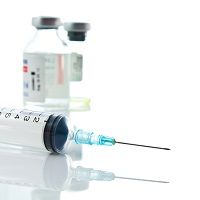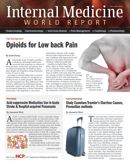Oral HPV Infections More Likely To Persist in Older Men
Persistent infection with oral HPV16 is believed to play a part in the development of most oropharyngeal cancers.

Persistent infection with oral HPV16 is believed to play a part in the development of most oropharyngeal cancers. Results from the HPV Infection in Men (HIM) study of 1,626 men, published online January 9, 2015, in Cancer Prevention Research, had provided more evidence that oral infection with HPV16 is more likely to persist 12 months or more in men over age 45 than in men under age 45.
Christine M. Pierce Campbell, PhD, MPH, and colleagues at the Moffitt Cancer Center in Tampa, FL, analyzed gargle samples of 23 HPV16-positive men, aged 18 to 64 years, who provided the samples on 2 or more visits during the study period (median, 44.4 months). All samples were analyzed and tested for HPV16 using Linear Array and INNO-LiPA detection methods.
Persistence of infection was evaluated using consecutive HPV16-positive visits held approximately 6 months apart. Of 13 incident infections, 4 (30.8%) persisted ≥12 months, 1 (10.0%) persisted ≥24 months, and none persisted ≥36 months. The median infection duration was 7.3 months (confidence interval [CI], 6.4-NA). Of 10 prevalent infections, 9 (90.0%) persisted ≥12 months, 8 (80.0%) persisted ≥24 months, 4 (57.1%) persisted ≥36 months, and 2 (40.0%) persisted ≥48 months.
Twelve-month persistence of incident infection increased significantly with age. Prevalent oral HPV16 infections in men persisted longer than newly acquired infections. Furthermore, persistence appeared to increase with age.
The researchers said the findings might explain the high prevalence of oral HPV seen at older ages. Understanding more about persistence of infection could potentially help to identify men at high-risk of developing HPV-related oropharyngeal cancer. More studies will be needed to develop screening methods of HPV-related head and neck cancers so that clinical benefit could eventually be realized.
